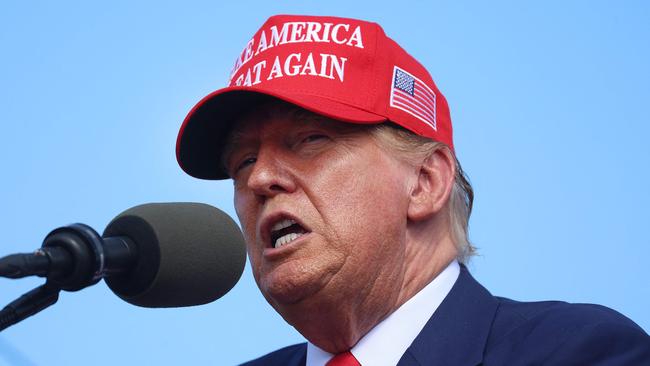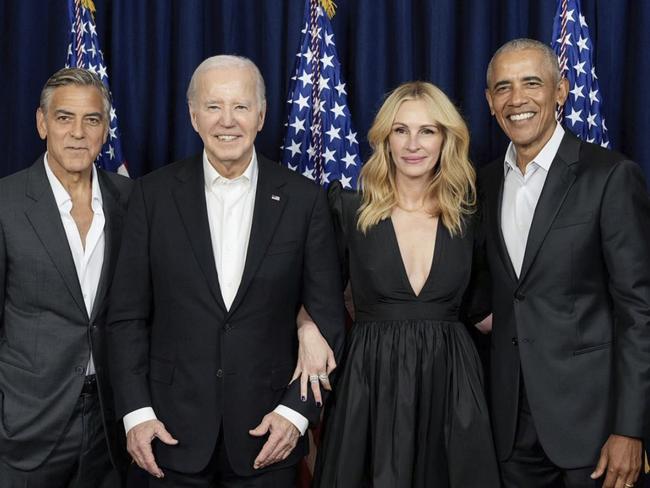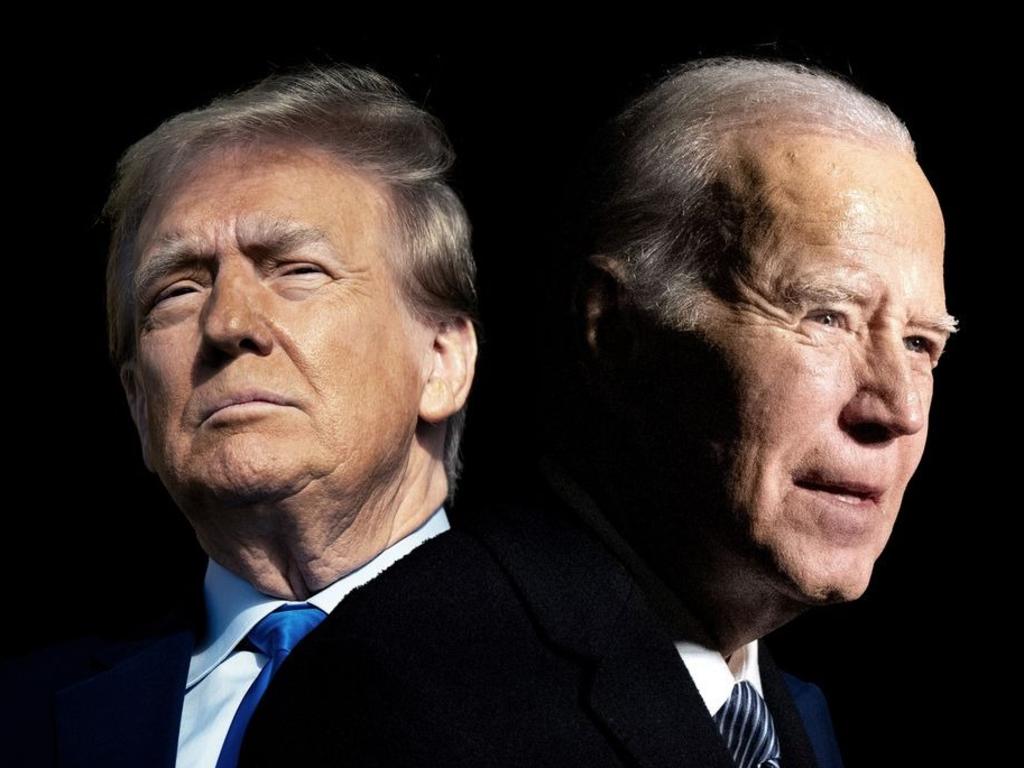
Too few Americans are buying their repeated dire warnings – about the end of US democracy, the emergence of a racist, homophobic police state – should Trump be re-elected, a prospect that looks increasingly likely.
MSNBC anchor Rachel Maddow, among the highest paid American journalists, last week broke down at the prospect of another Trump presidency, suggesting she would be interned in a concentration camp.
“What convinces you that these massive camps he’s planning are only for migrants? So, yes, I’m worried about me – but only as much as I’m worried about all of us,” she told her hundreds of thousands of viewers, barely holding back tears.
“When Trump invokes the Insurrection Act to deploy the US military against civilians on his first day in office, do you think he then rescinds the order on day two?” she asked.

From the January 6 riots in 2021 right up until the end of last year, when it seemed GOP challengers Ron DeSantis or Nikki Haley might defeat Trump for the Republican nomination, the former president’s opponents could make all manner of absurd forecasts about a second Trump administration, safe in the knowledge they would not be tested.
This is no longer the case: according to an average of eight political betting markets Trump has a 52 per cent chance of winning in November, compared with 34 per cent for incumbent Joe Biden – that’s the biggest percentage point gap between the two.
National polls suggest the same: Trump is ahead in practically all the swing states. The former president has more than recovered from the political damage he incurred from his conviction in Manhattan. If anything, that trial helped him, triggering a nine-figure fundraising bonanza that put to shame the $US30m ($45m) Biden raised with Julia Roberts and Barack Obama in California last weekend.

Yet his detractors – who must make up a large majority of the US political and media class – haven’t shifted gear.
Maddow’s colleague and fellow MSNBC anchor Nicolle Wallace warned in April she would be taken off air under Trump. “We can’t say for certain that there would even be a White House correspondents’ dinner, or even a free press, or even a White House press corps,” she told her fearful audience ominously. “This time next year I might not be sitting here.”
Trump, a former Democratic Party member and Manhattan socialite, repeatedly is compared to Adolf Hitler.
“A unified reich? That’s Hitler’s language. That’s not America’s,” Biden said in a reaction to a bizarre video that used the word reich, which the Trump campaign said it accidentally posted without realising the contents.

You’ve heard it a hundred times, even from Australia, no doubt: “Democracy is on the ballot.” But what happens if Trump wins and there’s a presidential election in 2028, after which Trump, who would be 82, not the usual age for triggering coups, leaves the White House as normal? What happens if Maddow and Wallace remain on air throughout a second Trump presidency, as they were during the first Trump administration? Another four years of Trump, assuming they are much the same as the first, could trigger the greatest humiliation of American political elites ever. Public health experts in the wake of Covid-19 will look prescient by comparison.
It’s hard to over-estimate the destruction of credibility that a significant proportion of the American governing class will endure if, having earnestly predicted a Trump dictatorship and the end of the US constitution, nothing remotely like that happens.

Their poor forecasting would have broader implications. It will become even harder for elites to fearmonger about climate change, or pandemics, or Russia’s supposed ambition to take over Europe, or whatever the next ostensible crisis happens to be.
The elites who cried dictatorship may come to regret their confected panic. The idea Trump is going to trash the US constitution and impose a dictatorship should be obviously ridiculous.
He didn’t try to do so in his first term. The US constitution easily withstood the January 6 riots and aftermath. Third, trying to co-opt the US military, which swears an oath not to the president but to the constitution, to seize the US government would probably backfire spectacularly, leaving Trump in a maximum-security prison or dead.
Moreover, he appears to crave approbation, a quality likely to be in short supply in his twilight years if he oversaw the end of the US constitutional experiment.

Trump’s opponents do have other options and enough time to change political tack. Democrats could argue how Trump policies could cause harm to working people, especially Republicans’ proposal to whack a 10 per cent tariff on all imports, which would trigger another round of inflation.
They should point out that prices, whose surge has been the single biggest factor in Biden’s political undoing, will not fall under Trump. Indeed, the former president’s bumper Covid stimulus was just as responsible for inflating the money supply as Biden.
They might wonder about the practical implications for families and the economy of trying to round up and expel 15 million to 20 million undocumented immigrants, as Trump has promised.
Maybe Trump would seek to trim Medicare and Social Security entitlements, two popular programs Democrats have yet to dwell on.
Trump’s latest promise to exempt tips from income tax for hospitality workers can’t be fulfilled without congressional approval.
Democrats haven’t lost the presidential election yet, but the evidence suggests their twin strategies of lawfare and hysterical fearmongering aren’t working.
If their dystopian forecasts don’t come true under Trump 2.0, no one will believe them for a generation.








Donald Trump’s increasingly hysterical opponents urgently need a new political strategy if they are to avoid their worst nightmare in November.